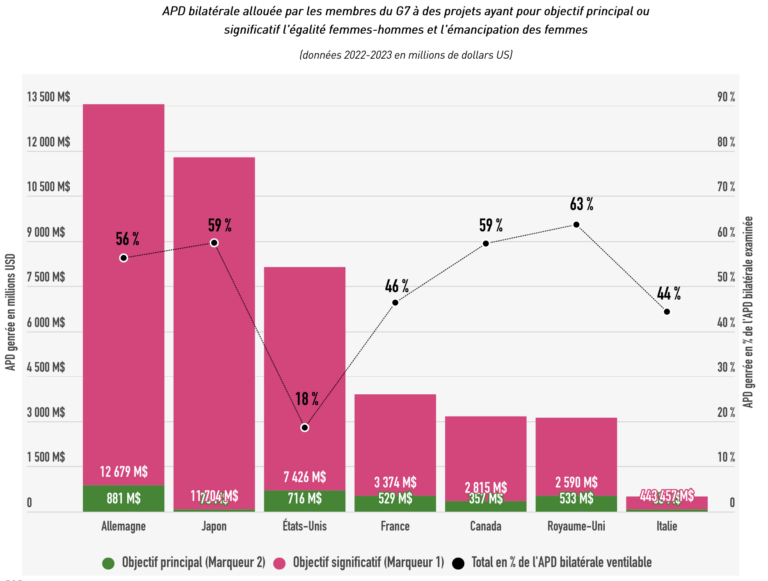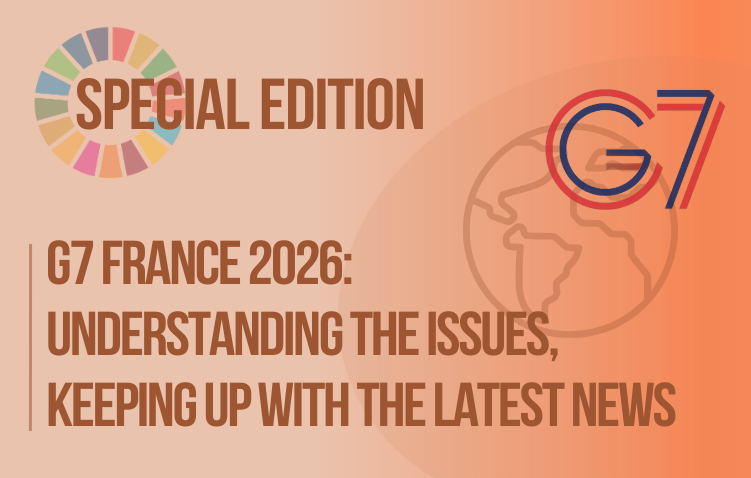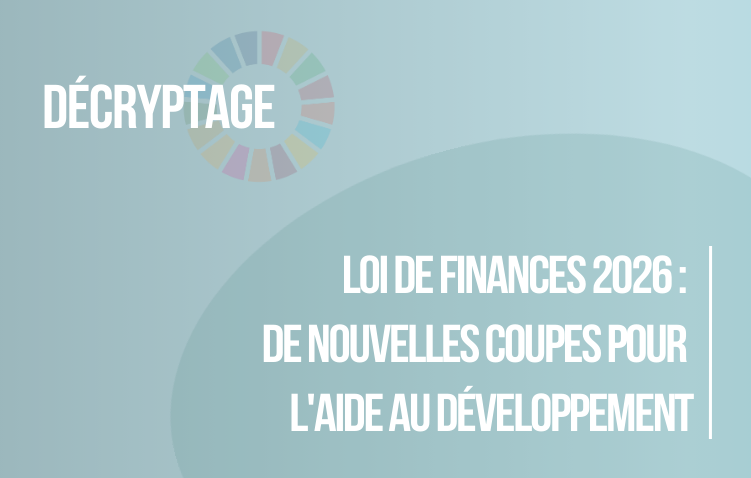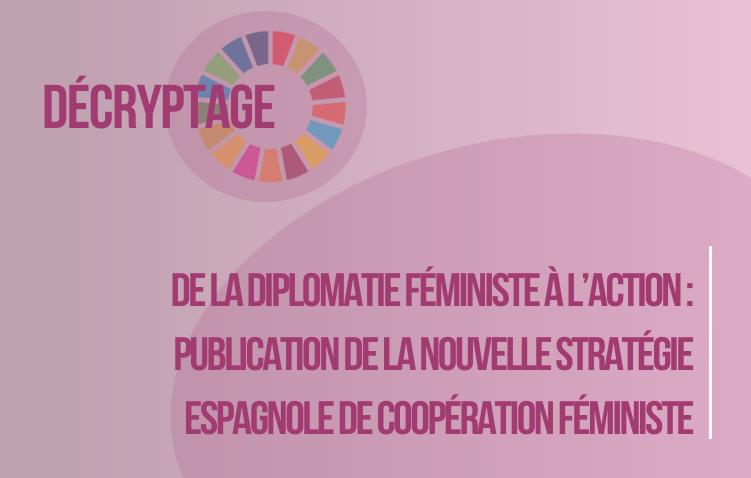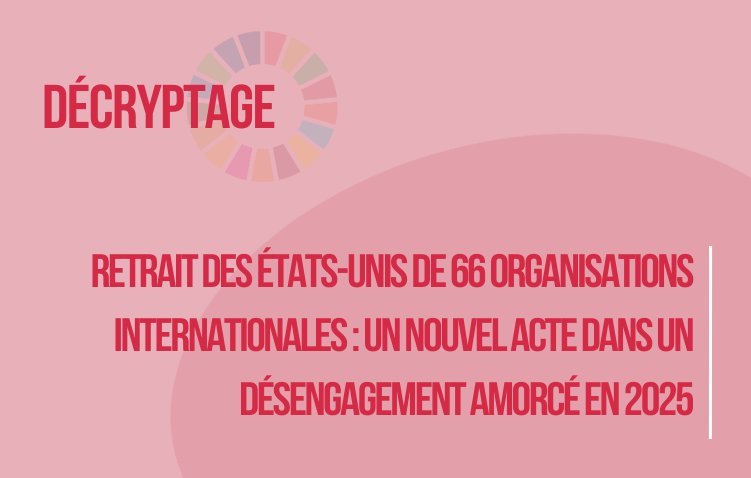3 questions to Liza Henshaw and Friederike Röder, President and Vice President of Global Citizen
Publié le 16/06/2023.
|
On June 22 and 23, 2023, a Summit for a New Global Financing Pact will be held in Paris, organized by France. Many leaders from States, governments, international organizations, civil society and the private sector will be invited to discuss solutions for financing global development and the climate transition. In order to decipher the stakes of this Summit, Focus 2030 aims to gather and highlight the point of view of organizations that are expert in their respective fields and is conducting a series of interviews with representatives of governments, international organizations, NGOs, think tanks, and others. Discover our Special Edition about the Summit for a New Global Financing Pact and all the interviews with experts conducted ahead of the Summit. |
Interview with Liza Henshaw and Friederike Röder, President and Vice President of Global Citizen
Written interview received on June 14, 2023.
Focus 2030 : Global Citizen recently launched the campaign “Power Our Planet: Act Today. Save Tomorrow.“, a global initiative co-chaired by Prime Minister Mia Mottley of Barbados, aimed at mobilizing essential funding for developing countries to fight climate change and extreme poverty. Can you tell us more about this campaign? How can citizens get involved? What can you say about the event you will hold in Paris during the Summit for a New Global Financing Pact?
Liza Henshaw and Friederike Röder : We announced in April the launch of the Power Our Planet campaign, to give poor and vulnerable countries a better financial foundation and access to financing solutions so they can more rapidly shift to clean energy and withstand natural disasters. This campaign encompasses the G7 in May, the New Financing Pact Summit in Paris in June, the G20 and UN General Assembly in September, and COP28 in November. The Power Our Planet will run alongside and be part of our End Extreme Poverty NOW campaign, which will take center stage in New York at Global Citizen Festival. During the all year, together with Global Citizens and global artists, we will call on world leaders, multilateral development banks, philanthropists, and private sector leaders to make ambitious commitments to unlock critical funding, invest in the green transition to keep global warming below 1.5 degrees and increase support for the poorest countries to address health inequity, education and fight poverty. We will call on the shareholders of the World Bank and other wealthy countries to make ambitious reforms to leverage more funding and make climate change a priority alongside poverty eradication.
To support this campaign, push for change and demand action from world leaders and financial institutions, you can add your voices and get involved by joining the movement at globalcitizen.org, download the Global Citizen app, and follow Global Citizen on Facebook, Instagram, LinkedIn, TikTok and Twitter.
As part of this campaign, Global Citizen will hold an event in Paris during the Summit for a New Global Financing Pact on June 22 on the Champs de Mars, in front of the Eiffel Tower.
‘Power Our Planet: Live in Paris’ is a free, ticketed event, featuring performances from Lenny Kravitz, Billie Eilish, H.E.R., Jon Batiste, with special guests FINNEAS and Mosimann. We are calling for strong commitments from incoming World Bank President Ajay Banga, the US secretary of Treasury Janet Yellen and other leaders and ministers of G20 Nations at the Summit for a New Financing Pact, hosted by French President Emmanuel Macron, in Paris on June 22 and 23. We hope this event will encourage decision-makers and will lead to real progress. Because we need pledges to be fulfilled and actions to be taken now. Not tomorrow.
Focus 2030 : Among the solutions put forward to fund the fight against climate change and extreme poverty, discussions have revolved around the rechanneling to developing countries of IMF’s 2021 allocation of Special Drawing Rights (SDRs). Would you say the Summit for a New Global Financing Pact can deliver on this issue?
Liza Henshaw and Friederike Röder : We think it can, yes – but we’re not sure it will.
While the IMF did issue $650B of these SDRs in 2021 amid global economic concerns due the Covid-19 pandemic, the world’s 44 poorest countries just got 7% of them. That’s why in 2021, the G7 and G20 endorsed a global aim to relocate at least $USD 100B in SDRs to poorer countries. Yet the pledge remains unfilled.
So the Summit for a New Global Financing Pact must deliver on this issue. By the end of the year, wealthy countries should reach the $100B reallocation target – without counting on the US contribution. The White House has agreed to recycle $21B in SDRs, but the Congress is blocking this. Indeed, the US shouldn’t be an excuse for the rest of the wealthy countries, in particular those members of the G20 and the EU, to make good on their promise.
Focus 2030 : If the Summit for a New Global Financing Pact were to deliver one outcome, which one would you pick? What will be the next steps?
Liza Henshaw and Friederike Röder : We need the World Bank reform, we need SDRs reallocation, we need a deal on debt, but in the end we also need additional grant funding, not just loans and mechanisms to leverage capital markets. So if we could choose one outcome from this Summit it will be to find additional funding by implementing an international tax. The Paris ‘New Global Financing Pact’ summit in June has to be a crucial moment to lay the foundations for a set of international solidarity taxes. These taxes would fund the fight against extreme poverty and global public goods on one hand and partially compensate for the inequalities that globalization structurally generates on the other. In total, the summit should be a historic opportunity for a group of vanguard countries to commit to explore the introduction of one or several taxes and raise a total of $100B a year of additional funding from taxes. We know that three taxes in particular have been discussed: the maritime transport tax, the fossil fuel tax and the Financial Transaction Tax (FTT).
These taxes could raise much needed grants, to help the poorest, most indebted countries, and resolve finance issues that don’t yield returns and cannot be funded by private capital (i.e. part of loss and damage or adaptation, but also the strengthening of health systems and preparation for future pandemic shocks).
Just to give you one example, Gunther Capelle-Blancard, in the study The taxation of financial transactions: an estimate of global tax revenues, shows that a tax on financial transactions similar to the French FTT or the British stamp duty extended at a global level could raise billions of euros. Extended to G20 countries, an equivalent tax would raise, despite its many exemptions, up to €260 billion per year, with a rate of 0.5%. This gives an idea of what’s possible, without impacting financial markets. The summit should be the opportunity for leaders to think and act big!
|






